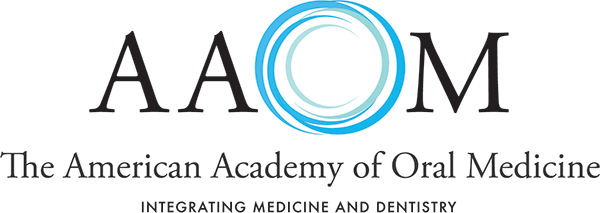|
Recertification of Diplomates
As prepared by the American Board of Oral Medicine (ABOM):
This summary is provided as a follow-up to the March 2018 message to Diplomates, as well as the in-person discussion at the April 12, 2018 Diplomate’s Luncheon.
Additional details will be posted on the Diplomate’s website in June of this year, in order to initiate the first cycle of the recertification process through December of this year.
As discussed at the Diplomate’s Luncheon, recertification processes are an essential component for specialty recognition and have been utilized by other recognized dental and medical specialties for many years.
- The American Board of Dental Specialties currently recognizes oral medicine as a specialty.
- Applying for specialty recognition through the American Dental Association (ADA) may be an option as the new ADA commission convenes (see next section).
The ABOM Directors have strived to develop a high-quality recertification model that is both cost- and time-effective for the Diplomates.
As always, the ABOM directors will be pleased to address any questions or concerns you might have. Thank you again for your support of this important new program.
Recertification Examination
Recertification of currently approved Diplomates remains a cornerstone of specialty recognition in the health professions in America. The recertification plan as described in this announcement for current Diplomates is designed to:
- Comply with policy currently required by the American Board of Dental Specialties;
- Provide a required element for a potential application for specialty recognition to be submitted to the ADA’s National Commission on Recognition of Dental Specialties, as approved by the ADA’s House of Delegates in October 2017 (Resolution 30-2017).
The recertification plan is comprised of three components:
- Diplomates in good standing at the time of taking the examination, including current dues paid.
- Continuing education points in the three calendar years preceding the examination date. Calculation of these points will be based upon modeling typically utilized for other professional credentialing (e.g., dental licensure, hospital appointments).
- Payment of recertification examination fee of $250.
Policies and Procedures
First cycle: Open 15 Jun - 31 Dec 2018 (2019 cycle to be determined)
Diplomate cohort: All Diplomates who achieved Diplomate status prior to or in April 2008
Resource access: Open resource, with adherence to honor code
Recertification cycles:
The first cycle of this recertification policy applies to all Diplomates who achieved active Diplomate status as of April 2008. Subsequent cycles apply to individuals who achieved Diplomate status beginning in April 2009.
The following table illustrates the first five cycles:
|
Recertification cycle
|
Diplomate status achieved as of April of the following year:
|
Due date for
1st recertification attempt
|
Due date for successful completion
(three (3) years later)
|
|
Cycle 1
|
prior to or in 2008
|
Dec 31st, 2018
|
Dec 31st, 2021
|
|
Cycle 2
|
2009
|
Dec 31st, 2019
|
Dec 31st, 2022
|
|
Cycle 3
|
2010
|
Dec 31st, 2020
|
Dec 31st, 2023
|
|
Cycle 4
|
2011
|
Dec 31st, 2021
|
Dec 31st, 2024
|
|
Cycle 5
|
2012
|
Dec 31st, 2022
|
Dec 31st, 2025
|
Candidates have three attempts to pass the examination during the three-year timeframe.
- A passing grade for the recertification examination is 70%.
- Upon passing the recertification examination, Diplomate status will remain in effect for ten years in the following context:
- During these ten years, the Diplomate must remain in good standing per the other requirements of maintaining Diplomate status (e.g., current with dues payments and continuing education requirements.)
- Diplomates are then eligible to rechallenge the recertification examination beginning seven years after the first date of passing the examination. Diplomates have up to three years to pass the subsequent recertification examination, prior to the ten-year expiration date.
Failure after three attempts over the three years will produce the requirement for additional, content-directed learning enhancement prior to rechallenging the examination. This enhancement component may include assignment of additional materials for study and/or participation in specific continuing education opportunities.
Distribution of exam:
Notification of outcome:
- A web link to the test results will be sent to the Diplomate via the secure ABOM website, based on software grading of the examination.
- The software will generate a certificate of completion via e-mail from Class Marker, for those Diplomates passing the examination. The recipient can then print the certificate.
There will be approximately 80 multiple-choice questions, distributed equally across the following domains:
- Oral Pathology
- Oral Radiology
- Medically Compromised Patient
- Laboratory Testing
- Orofacial Pain
Return to 2018 Spring AAOM News
|
